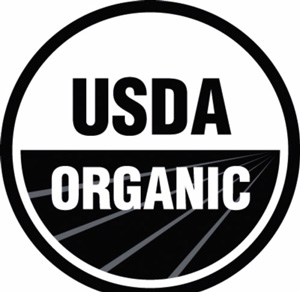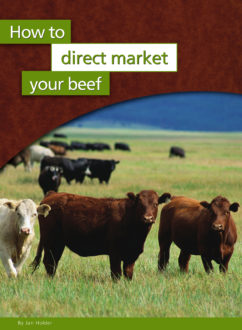
Until the summer of 1999, the USDA would not recognize, nor issue labels, that made any kind of claim to being organic (at least as far as beef was concerned). That’s how natural beef got started. Legally, the USDA use of natural only meant that your beef had no artificial additives and was minimally processed. So unless you injected your sir-loin with Red Dye No. 5 or ground it and reformed it into steak nuggets, you could qualify as natural.
However, some folks felt they could offer more and strove for an “organic” label. The USDA has since finalized its organic label, including one for beef. As part of that, USDA recognizes third-party private certifiers. To learn more about organic livestock production, see the online Organic Livestock Workbook produced by NCAT. (Resources, p. 88.)
USDA Legal Definitions
- Natural beef: No artificial additives, minimally processed
- Organic beef: No hormones, antibiotics, pesticides, and fed only organically raised feed. For beef to be certified organic, the processor who renders it needs to be certified as well.
What makes this issue confusing is that customers have differing perceptions on what these terms mean. For instance, natural beef is considered by most people to be beef with no antibiotics and no steroids. Using the USDA definition, that isn’t necessarily true.
Although most people can tell you what the term free range means, there is a great deal of confusion among consumers between organic and natural. You should be aware of how educated your customers are before going through all the trouble and cost of being organic.
Personally, I feel this will be the final chapter for the vague natural label. I predict that the term natural will start to fade away, as beef companies develop their specific certification programs.
